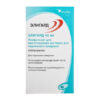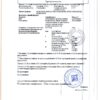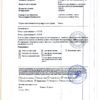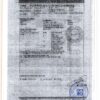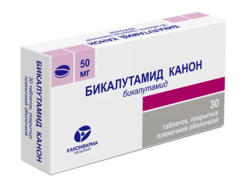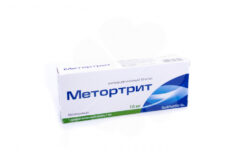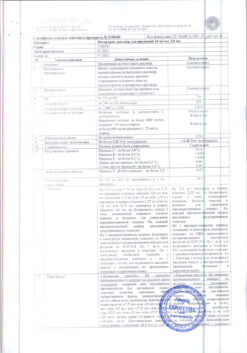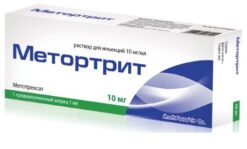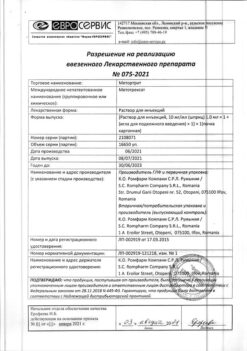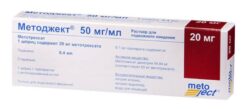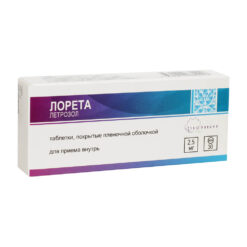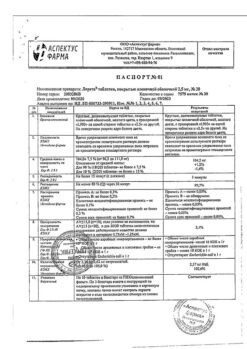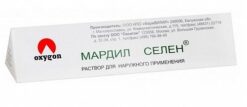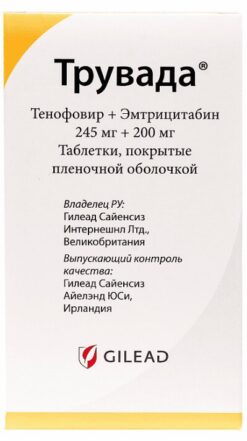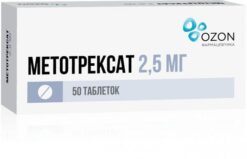No products in the cart.
Description
Hormone-dependent prostate cancer.
Active ingredient
Active ingredient
Composition
Composition
1 syringe A contains:
the active ingredient:
no
excipients:
solvent consisting of:
–
–
217 mg
1 syringe B contains:
active ingredient: leuprorelin acetate*
7.5 mg dose: 10.6 mg
22.5 mg dose: 29.2 mg
45 mg dose: 59.2 mg
excipients: none
*The excess leuprorelin acetate compensates for losses in the syringe and needle. The reconstituted solution (administered dose) contains 7.5 mg, 22.5 mg or 45 mg of leuprorelin acetate.
How to take, the dosage
How to take, the dosage
Interaction
Interaction
Special Instructions
Special Instructions
Contraindications
Contraindications
Side effects
Side effects
Adverse events caused by taking Eligard are mainly due to the specific pharmacological action of leuprorelin, which causes increases and decreases in hormone levels. The most common side effects were “hot flashes”, malaise, nausea and weakness, and local irritation at the injection site. Mild to moderate “flushes” were observed in approximately 58% of patients.
The following adverse events have been reported during clinical trials of Eligard in patients with advanced prostate cancer. The frequency of adverse reactions listed below is stated according to the following grading: very common (>1/10), common (>1/100, <1/10); infrequent (>1/1000, <1/100); rare (>1/10000, <1/1000); very rare (<1/10000), unknown (cannot be estimated based on available data).
Table 1:
Unwanted events in clinical trials of Eligard
Infectious and parasitic diseases
Not known
very often
very often
often
infrequently
often
often
Reproductive and mammary system disorders
often
infrequent
Systemic disorders and complications at the site of administration
very common
often
malaise, pain at the injection site, bruising, burning, muscle stiffness, weakness
infrequent
itching at the injection site, lethargy, pain, pyrexia
rarely
Blood and lymphatic system disorders
hematologic changes (abnormal blood cell count, abnormal INR (international normalized ratio)
infrequent
increased alanine aminotransferase activity, hypertriglyceridemia, increased prothrombin time, weight gain
Other adverse events when taking leuprorelin acetate include: Peripheral edema, pulmonary embolism, palpitations, myalgia, muscle weakness, impaired skin sensitivity, chills, dizziness, pruritus, amnesia and visual disturbances. Rarely, cases of pituitary apoplexy-induced infarction have been reported after taking short- and long-acting GnRH antagonists. Cases of thrombocytopenia and leukopenia and changes in glucose tolerance have also been reported.
The local reactions after administration of the drug Eligard are the same as those of subcutaneous administration of other drugs.
In general, local reactions after administration of the drug are moderate and short-lived.
Changes in bone density
Publications have noted decreased bone density in men after orchiectomy or GnRH analogue therapy. It can be assumed that long-term leuprorelin therapy leads to increased symptoms of osteoporosis, which increases the risk of fractures.
Worsening of symptoms and signs of disease
The therapy with leuprorelin acetate may lead to worsening of disease symptoms during the first weeks of treatment. In diseases with spinal metastases and/or urinary tract obstruction or hematuria, neurological complications such as weakness and/or paresthesias of the lower extremities or worsening symptoms of urinary dysfunction may occur.
Overdose
Overdose
Additional information
| Weight | 0.066 kg |
|---|---|
| Manufacturer | Tolmar Inc. |
| Medication form | lyophilizate |
| Brand | #Н/Д |
Related products
Buy Eligard, lyophilizate 45 mg syringes 2 pcs with delivery to USA, UK, Europe and over 120 other countries.





